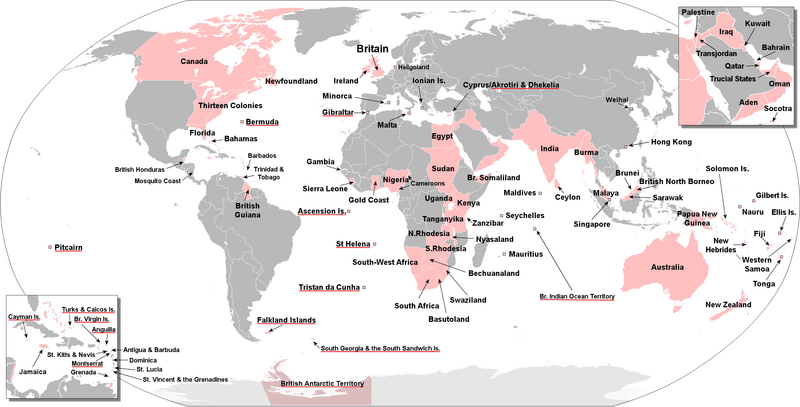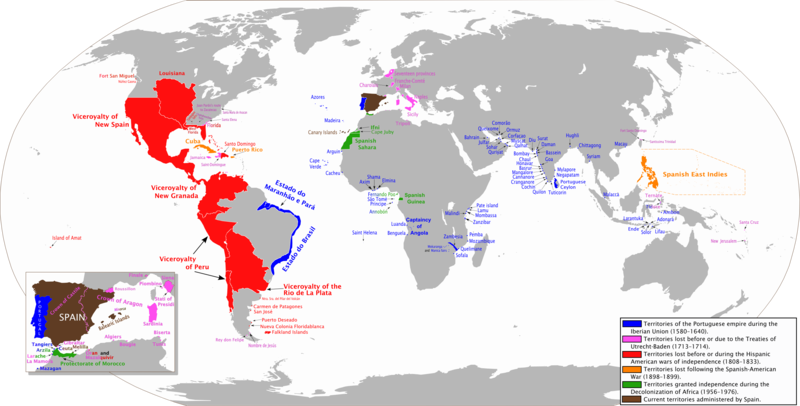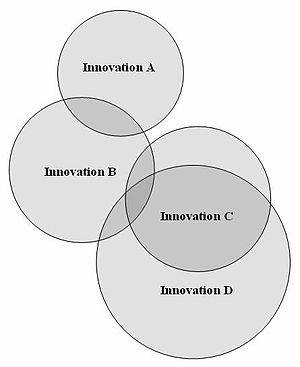shafique wrote:Sure thing:
http://www.alislam.org/topics/arabic/Philology says there was one mother language - and commonly it is said to be a lost proto-language. The second article on the page gives arguments why Arabic is this language, and the author makes his point by showing how other languages are derived from Arabic.
Given the differences between English, French and other latin languages with Latin itself - I think he makes a good argument.
Cheers,
Shafique
You and I are basically aware of history and its archeological written evidence of empire building and colonization. We can think of the Ottoman empire, the British, Dutch, Spanish, Portugese colonization in Europe, Asia etc.
The result of the influence of language and cultures of empires that crossed the globe during colonization and empire building is visible through the use of
loanwords. To give you an idea of the Arabic influence in world history we look at the Ottoman Empire (1293–1923), one of the longest surviving empires in world history. This research you showed was done around 1965 and is to say the least, very naieve, seen from a historic context. Let me explain;
English is the first language in the world today. Its because of the influence of the English Empire accross the globe. Spanish is the second most spoken language in the world today due to the same reason. You can easily see the relation of cultural and linguistic influences due to colonization in the maps provided below.
Lets put this in historic context starting with the Roman empire:
1. Roman Empire (27 BC–AD 476/1453), latin influences and loanwords!
By the time of the imperial period Latin evolved into two languages: the 'high' written Classical Latin and the 'low' spoken Vulgar Latin. While Classical Latin remained relatively stable, even through the Middle Ages, Vulgar Latin as with any spoken language was fluid and evolving. Vulgar Latin became the lingua franca in the western provinces, later evolving into the modern Romance languages: Italian, French, Portuguese, Spanish, Romanian, etc. Greek and Classical Latin were considered the languages of literature, scholarship, and education.

2. Ottoman Empire (1293–1923), Arabic influences and loanwords from other cultures!
Arabic loanwords in English are words acquired directly from Arabic or else indirectly by passing from Arabic into a third language (often Latin or Spanish) and then into English. Some of these Arabic loanwords are not of ancient Arabic origin, but are loanwords within Arabic itself, coming into Arabic from Persian, Greek or other languages.
Why was the Empire successful?
There were many reasons why the Ottoman Empire was so successful:
Highly centralisedPower was always transferred to a single person, and not split between rival princes
The Ottoman Empire was successfully ruled by a single family for 7 centuries.
State-run education system
Religion was incorporated in the state structure, and the Sultan was regarded as "the protector of Islam".
State-run judicial system
Ruthless in dealing with local leaders
Promotion to positions of power largely depended on merit
Created alliances across political and racial groupsUnited by Islamic ideologyUnited by Islamic warrior code with ideal of increasing Muslim territory through Jihad
United by Islamic organisational and administrative structures
Highly pragmatic, taking the best ideas from other cultures and making them their ownEncouraged loyalty from other faith groups
Private power and wealth were controlled
Very strong military
Strong slave-based army
Expert in developing gunpowder as a military tool
Military ethos pervaded whole administration
One legacy of the Islamic Ottoman Empire is the robust secularism of modern Turkey.
At its peak it included:
Turkey, Egypt, Greece, Bulgaria, Romania, Macedonia, Hungary, Palestine, Jordan, Lebanon, Syria, Parts of Arabia, and much of the coastal strip of North Africa.
3. Dutch Empire (17th to 20th century, corresponding with British, Spanish, Portuguese empire expansions)
Lingquistic influences very limited due to trade focus. British and Spanish influences were much more pressured by religious conviction.
The Dutch Empire consisted of the overseas territories controlled by the Netherlands from the 17th to the 20th century. The Dutch followed Portugal and Spain in establishing an overseas colonial empire, aided by their skills in shipping and trade and the surge of nationalism accompanying the struggle for independence from Spain.
Alongside the British, the Dutch initially built up colonial possessions on the basis of indirect state capitalist corporate colonialism, via the Dutch East and West India Companies. Dutch exploratory voyages such as those led by Willem Barents, Henry Hudson and Abel Tasman revealed to Europeans vast new territories.
With Dutch naval power rising rapidly as a major force from the late 16th century, the Netherlands dominated global commerce during the second half of the 17th century during a cultural flowering known as the Dutch Golden Age. The Netherlands lost many of its colonial possessions, as well as its global power status, to the British when the metropole fell to French armies during the Revolutionary Wars. The restored portions of the Dutch Empire, notably the Dutch East Indies and Suriname, remained under Dutch control until the decline of European imperialism following World War II.
Today, the Netherlands are part of a federacy called the Kingdom of the Netherlands, along with its former colonies Aruba and the Netherlands Antilles.
Dutch 'empire':

English empire:

Spanish empire:

In conclusion:
Arabic language during the Ottoman empire wasn't promoted or forced outside the region. The Ottoman empire was highly centralized and therefore long lasting and effective. The influence of Arabic language in other cultures and languages is visible, but limited. It was the Roman, Spaniard and English empires who promoted their language with much more vigorous efforts. The Dutch merely colonized for trade and had no intention to convert for religous reasons like Christianity did.









